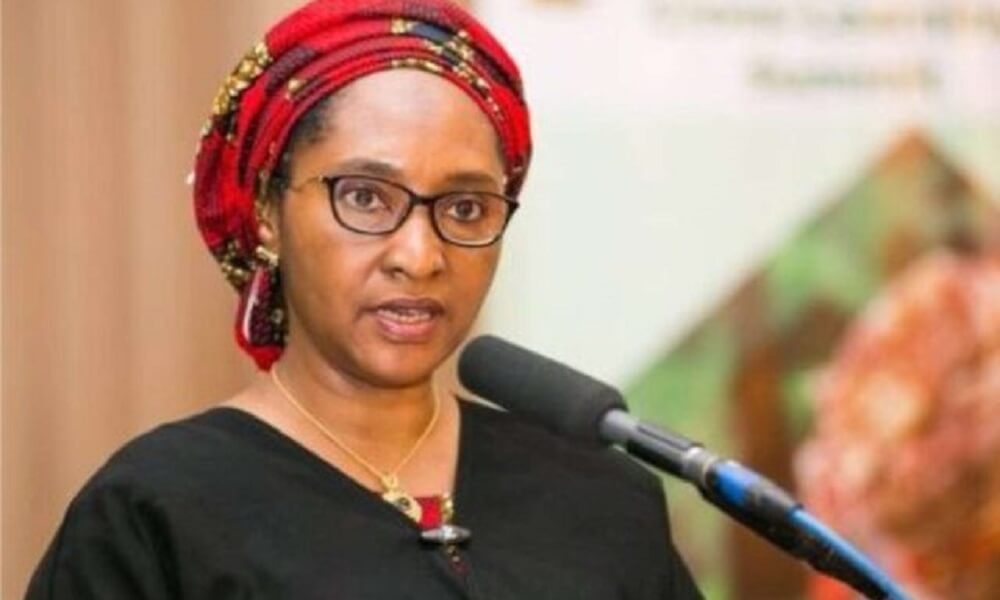The Federal Government is planning to replace fuel subsidy with a N2.4trn annual transportation grant to about 40 million poorest Nigerians.
The Minister of Finance, Budget and National Planning, Zainab Ahmed, said on Tuesday that this will be implemented by 2022.
According to the minister, the subsidy will be replaced with a N5000-a-month transportation grant to the poorest Nigerians.
She disclosed this at the launch of the World Bank Nigeria Development Update (NDU).
The Minister of Humanitarian Affairs, Disaster Management and Social Development, Sadiya Umar Farouq, had in February said 26.8 million Nigerians are extremely poor, a number that experts believe is on the rise.
But Ahmed said the grant will go to about 20 to 40 million Nigerians who make up the poorest population of the country.
In her presentation, she said the final number of beneficiaries will depend on the resources available after the removal of the fuel subsidy.
By implication, Nigeria will spend N200bn monthly if 40 million beneficiaries are targeted.
In a year, Africa’s most populous nation will spend N2.4trn on transportation grants to its poorest population.
THE WHISTLER had reported that the NNPC incurred the sum of N25.37bn on subsidy in February this year.
The amount moved up to N60.39bn and N61.96bn in March and April, before hitting N126.29bn and N164.33bn in the months of May and June.
For the month of July, the Corporation incurred the sum of N103.28bn as subsidy on PMS, while the figure went up to N173.13bn and N149.28bn in August and September respectively.
The Federal Government had in the 2021 budget abolished the payment of fuel subsidy as no provision was made for such expenditure.
THE WHISTLER had exclusively reported that as a result of the non-provision of fuel subsidy in the 2021 budget, the burden of the projected N1trn federation account remittance shortfall had been pushed to the NNPC in the form of under-recovery.
The under-recovery is expected to arise from the price differential between the landing cost and pump price of petrol.
Ahmed, had during the public consultation of the Medium-Term Expenditure Framework/Fiscal Strategy Paper for 2022-2024 described the amount spent on subsiding petrol as a drain on the economy.
She said that a whopping sum of N900bn will be spent next year in subsidizing the price of Premium Motor Spirit, adding that such would have been spent on more productive sectors of the economy such as health, education and infrastructure.
An analysis of the 2022 Federal Government spending showed that the projected subsidy budget of N900bn is higher than the N292.7bn for sinking fund, N750.03bn allocated for personnel cost for Government Owned Enterprises, and N335bn overheads cost.
It is also higher than the N261.2bn budgeted for overhead costs for Government Owned Enterprises; N567.02bn for pension, gratuities and retirees; and N366.13bn capital supplementation budget.
Ahmed had said, “This (subsidy) is costing us big time. We are spending over N150bn on subsidy, that means NNPC has to use that amount of money to pay for PMS and distributing it. That is money that the federation account can share.
“This is money that could have been available for education, health and infrastructure. reduce our borrowing, increase the amounts that states and local governments are collecting.
“We are being penny wise pound foolish to think that by giving this subsidy, that citizens are benefitting. But by the end of the day, the citizens are actually the ones that are carrying the brunt of the wealthy.”
The finance minister lamented that while subsidy was supposed to be enjoyed by the poor, those that are actually benefiting from it are the rich people in the society.
She added, “Some (the rich) have two, three, four cars and they are the ones that we are subsidizing.
It is not helping the farmer who needs a bus from his farm to the market. But we need to get rid of subsidy completely, although it is not a popular view with labour.
“Right now, we are subsidizing consumption in Nigeria, we sell at N165 per liter when our neighbors are selling at N500 per liter. It is only the marketers that are benefiting by taking this product from Nigeria and selling it across borders. The common man is not benefiting.
“The transition is not an easy one if we have to remove the subsidy. What are the alternatives? What can we provide for Citizens? So, we are projecting we’ll be paying at least N900bn subsidy for next year.
“Imagine what we could have done with that amount. How many schools you can build, how many health centers. It is not wise; it is not wise because we are hurting our economy.”
 DailyrecordNg …Nigeria's hottest news blog
DailyrecordNg …Nigeria's hottest news blog









